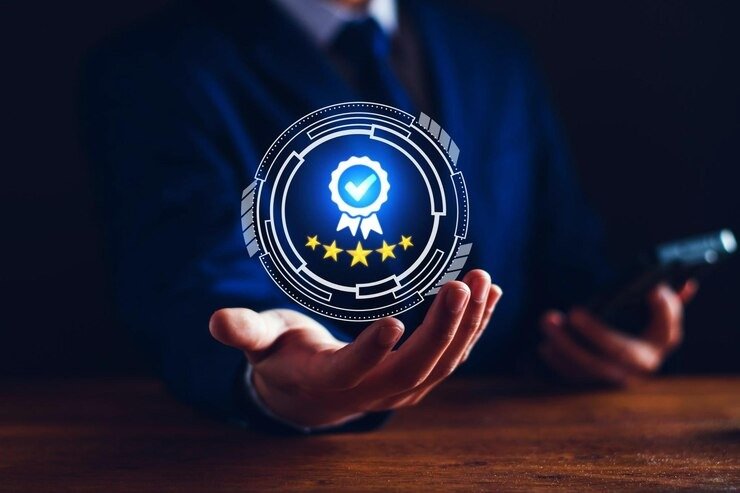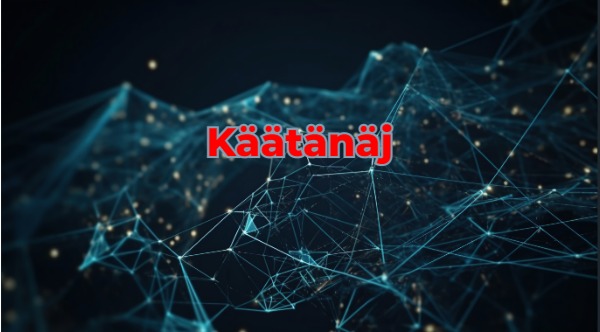Compliância: Navigating the Complex Landscape of Compliance

Compliance or Compliância in Portuguese, stands as the bedrock of ethical and legal business practices across industries. In this article, we delve into the intricate world of compliância, exploring its evolution, key components, challenges, and the role of technology. From industry-specific compliance to the cultural shift needed within organizations, we aim to provide a comprehensive understanding of the subject.
Introduction
Compliância, at its core, refers to the adherence to laws, regulations, and ethical standards within an organization. It is the proactive approach that businesses take to ensure their operations align with legal requirements, industry standards, and societal expectations. As the business landscape continues to evolve, the importance of compliância becomes increasingly pronounced.
Evolution of Compliance
Historical Background
To comprehend the significance of compliância, it’s crucial to trace its roots. Compliance, in various forms, has been a part of business practices for centuries. From trade regulations in ancient civilizations to the industrial era’s labor laws, businesses have always operated within a framework of rules.
Transition from Traditional to Modern Compliance Practices
The 21st century witnessed a paradigm shift in compliance practices. The digital revolution and globalization brought about new challenges that traditional methods struggled to address. Modern compliância emphasizes agility, adaptability, and a proactive approach to stay ahead of ever-evolving regulations.
Key Components of Compliância
Regulatory Frameworks
At the heart of compliância lies an intricate web of laws and regulations. Businesses must navigate through local, national, and international frameworks to ensure they operate within legal boundaries. Understanding these regulations is the first step towards establishing a robust compliance program.
Internal Policies and Procedures
Beyond external regulations, organizations must craft their internal policies and procedures. These guidelines serve as the blueprint for ethical conduct, defining the boundaries within which employees must operate. Well-defined internal policies contribute to a culture of compliância.
Risk Management
Compliance is not merely about following rules; it’s also about mitigating risks. A comprehensive compliância strategy involves identifying potential risks, assessing their impact, and implementing measures to minimize the likelihood of non-compliance.
The Role of Technology in Compliância
Automation of Compliance Processes
In the digital age, manual tracking and monitoring of compliance activities are inefficient and prone to errors. Automation streamlines these processes, ensuring that compliance tasks are executed consistently and in a timely manner.
Use of AI for Risk Assessment
Artificial Intelligence (AI) plays a pivotal role in risk assessment. By analyzing vast datasets, AI algorithms can identify potential compliance issues before they escalate. This proactive approach is instrumental in preventing legal and ethical breaches.
Blockchain for Transparent Record-Keeping
Blockchain technology ensures transparent and tamper-proof record-keeping. This is particularly crucial in compliance, where accurate documentation is essential. Blockchain provides a secure and immutable ledger, reducing the risk of data manipulation.
Challenges in Achieving Compliância
Rapid Changes in Regulations
One of the foremost challenges in compliância is the rapid pace at which regulations evolve. Keeping abreast of these changes and adapting compliance programs accordingly is a perpetual challenge for businesses.
Globalization and Its Impact
Globalized business operations mean dealing with diverse regulatory environments. Navigating through different legal landscapes requires a nuanced understanding of cultural, legal, and ethical variations.
Balancing Compliance with Business Goals
Striking a balance between compliance and business objectives is a delicate task. Sometimes, stringent compliance measures may seem at odds with the agility required for business growth. Finding the equilibrium is a constant challenge for organizations.
Industry-Specific Compliance
Healthcare
In the healthcare industry, compliância goes beyond legal obligations. Patient privacy, data security, and ethical medical practices form the cornerstone of compliance efforts. With the digitization of health records, the challenges and stakes have risen significantly.
Finance
Financial institutions operate in a highly regulated environment. From anti-money laundering measures to financial reporting standards, the financial sector’s compliância landscape is intricate and demanding.
Technology
In the tech-driven landscape, compliance extends to data protection, cybersecurity, and ethical use of technology. With rapid advancements, tech companies must proactively address emerging compliance challenges.
Compliância and Ethical Standards
Ensuring ethical behavior is integral to any compliância strategy. Ethical standards provide the moral compass that guides decision-making within an organization. It goes beyond mere adherence to rules, emphasizing a commitment to doing what is right, even in the absence of explicit regulations.
Incorporating ethical considerations into compliance frameworks fosters a culture of integrity. It prompts organizations to question not just whether an action is legal, but also whether it aligns with their core values and contributes positively to society.
Case Studies in Compliância Success
Real-world examples serve as beacons of success in the compliância journey. Examining companies that have excelled in compliance offers valuable insights and lessons for others. Case studies showcase practical applications of compliance strategies, shedding light on the challenges faced and the solutions implemented.
By learning from the experiences of industry leaders, organizations can refine their compliância programs and adapt them to their specific contexts.
Importance of Training and Education
Continuous learning is a cornerstone for compliance professionals. Training programs not only keep individuals updated on the latest regulations but also enhance their understanding of the ethical dimensions of compliância.
Incorporating compliance education into academic curricula ensures that future professionals enter the workforce with a solid foundation in compliância principles. This proactive approach contributes to a pool of knowledgeable individuals capable of navigating the complexities of compliance.
Future Trends in Compliância
The landscape of compliância is dynamic, with emerging trends shaping its future trajectory.
Predictive analytics is poised to revolutionize compliance by enabling organizations to anticipate and address potential issues before they manifest. The integration of emerging technologies, such as machine learning and advanced analytics, will play a pivotal role in enhancing the efficiency and effectiveness of compliance programs.
Global collaboration in compliance efforts is another trend on the horizon. As businesses operate in an increasingly interconnected world, collaboration between regulatory bodies and businesses becomes imperative. A harmonized approach to compliance can streamline processes and create a more conducive environment for ethical business practices.
Compliância and Cybersecurity
The intersection of compliância and cybersecurity is a critical focal point. With the growing threat landscape in the digital realm, organizations must safeguard sensitive data to maintain compliance.
Strategies encompassing encryption, secure access controls, and regular cybersecurity audits are integral to a comprehensive compliância program. By addressing cybersecurity concerns, organizations not only protect themselves from potential breaches but also demonstrate a commitment to maintaining the trust of their stakeholders.
Measuring the Effectiveness of Compliância Programs
Establishing key performance indicators (KPIs) is essential for gauging the success of compliância programs. These metrics may include the frequency of audits, the rate of compliance incidents, and the time taken to address identified issues.
Regular audits and assessments provide organizations with insights into the effectiveness of their compliância measures. This continuous feedback loop enables them to iterate and enhance their programs to stay ahead of evolving challenges.
Legal Implications of Non-Compliance
The consequences of non-compliance extend beyond fines and penalties. Reputation damage and loss of customer trust can have far-reaching implications.
Understanding the legal ramifications of non-compliance serves as a powerful motivator for organizations to invest in robust compliância programs. It underscores the importance of proactive measures to avoid legal pitfalls and maintain a positive public image.
Implementing Compliância in Small Businesses
While large corporations may have dedicated compliance departments, small businesses often face resource constraints. Tailoring compliance programs to suit the scale and resources of small businesses is crucial.
Cost-effective approaches, such as leveraging technology for streamlined processes, outsourcing specific compliance functions, and prioritizing high-impact areas, allow smaller enterprises to establish effective compliância programs without overburdening their resources.
Cultural Shift towards Compliância
Building a culture of compliance within organizations requires a concerted effort. It involves instilling a sense of responsibility and accountability at every level of the hierarchy.
Employee awareness and engagement programs play a pivotal role in this cultural shift. When employees understand the significance of compliância and how their actions contribute to the organization’s ethical standing, they become active participants in the compliance journey.
Compliância and Corporate Governance
Integrating compliance into corporate governance structures ensures that it receives the attention and priority it deserves. Board responsibility in compliance matters is not just a legal requirement; it is a strategic imperative.
By embedding compliance considerations into governance frameworks, organizations signal their commitment to ethical business practices. This, in turn, fosters trust among stakeholders and contributes to the long-term sustainability of the business.
Compliância and Sustainable Practices
Environmental, social, and governance (ESG) considerations are becoming increasingly intertwined with compliância. Organizations are recognizing the need to align compliance efforts with sustainability goals.
By incorporating ESG factors into their compliância programs, businesses can demonstrate a holistic commitment to responsible and sustainable practices. This integration goes beyond regulatory requirements, reflecting a broader ethical responsibility to the planet and society.
Collaboration Between Regulatory Bodies and Businesses
Striking a balance between regulation and industry needs requires ongoing collaboration between regulatory bodies and businesses. Open communication channels and a mutual understanding of each other’s perspectives contribute to a regulatory environment that is both effective and supportive of business growth.
Establishing effective communication channels allows businesses to provide input on regulatory changes that may impact their operations. This collaborative approach ensures that regulations remain relevant and feasible for businesses to implement.
The Human Element in Compliância
Behavioral aspects play a significant role in compliance. Encouraging ethical decision-making requires more than just rules and regulations; it involves fostering a mindset of integrity and accountability.
Organizations can implement strategies such as ethical leadership training, incentivizing ethical behavior, and creating a supportive reporting culture to address the human element in compliância. When individuals feel empowered to make ethical choices, the entire organization benefits.
Conclusion
In conclusion, compliância is not merely a checkbox exercise; it is a dynamic and integral aspect of modern business operations. From navigating complex regulatory landscapes to fostering a culture of integrity, compliância touches every facet of an organization.
As we look towards the future, the convergence of technology, ethics, and global collaboration will shape the landscape of compliância. Organizations that proactively embrace these changes will not only navigate the complexities successfully but also contribute to a business environment built on trust, transparency, and sustainability.
Also Read: Duggar News










